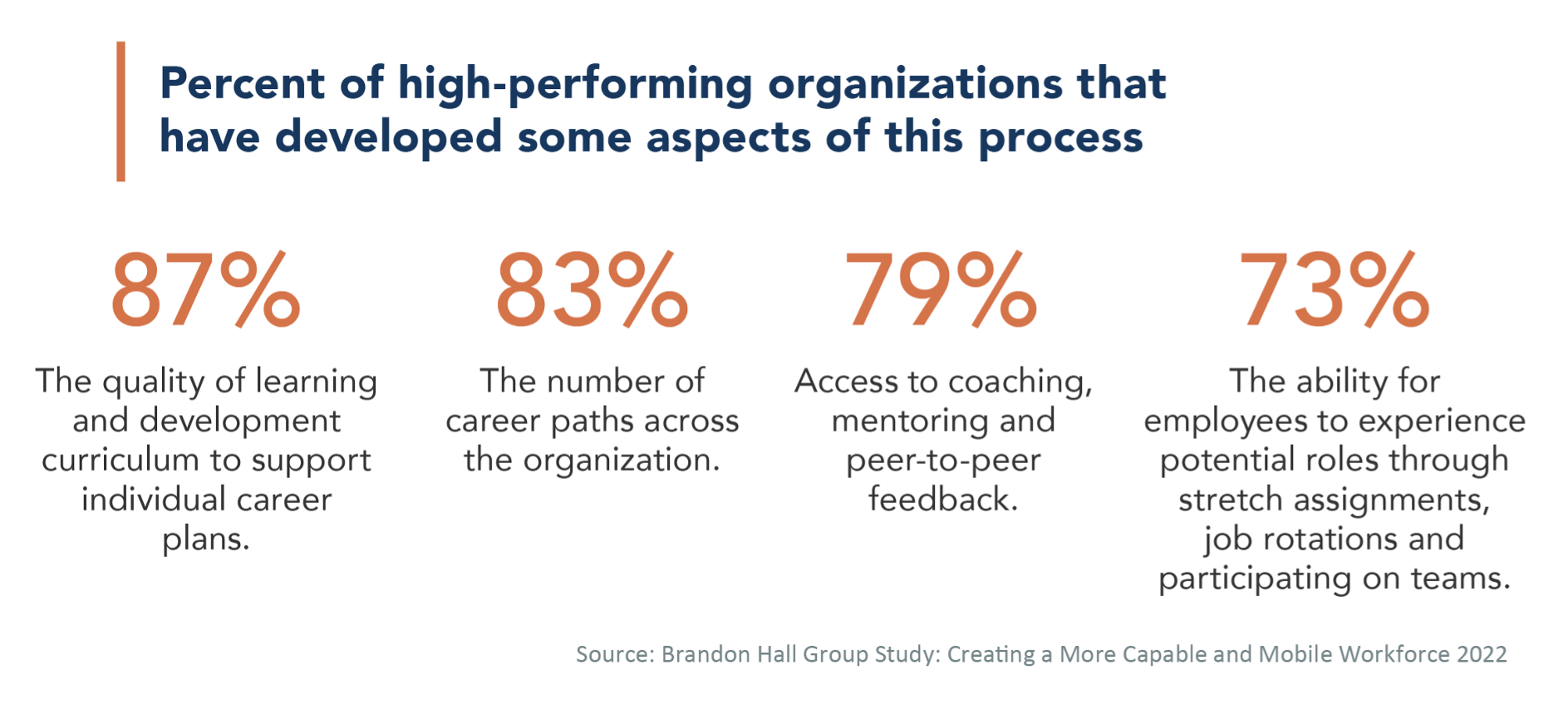
Both the workforce and workplace have changed drastically in the last few years. Organizations must explore new and sometimes untested ways to allow their employees to advance even in this new environment. Although the fundamental concepts of discovering and assessing skills across the enterprise are still at the core of creating a more capable and mobile workforce, new ways of accelerating skill and competency development are now being used.
Overcoming the Challenges
Besides the most obvious challenge (a lack of budget/resources), two other major complications plague organizations looking to increase the capabilities of their workforce: a lack of career paths and a lack of career coaches. These two obstacles, a lack of options and internal or external support, show that increasing employee capabilities is not a high priority in many organizations.
Organizations that are looking to have a more capable and mobile workforce must allocate budget for increasing the capabilities of their workforce, but they must do so in a focused and direct way—by auditing their career pathing opportunities and finding ways to increase employee mobility, and by investing in internal and external coaching resources.
The elements of the career development process that high-performing organizations (those that have seen an increase in revenue, engagement, customer satisfaction, and customer retention over the last year) primarily have focused on are:
- Access to coaching
- Experiential learning opportunities
- Increased career path opportunities
- The quality of learning and development support

Organizations that use these aspects of career development are more likely to see increases in several business metrics, not just career development-specific ones. This shows the importance of these activities in helping the organization achieve its overall goals and helps justify an increase in budget allocation to these activities. Let’s take a look at each one in more detail:
Create More Opportunities for Coaching, Mentoring, Peer-to-Peer Feedback
Coaching and mentoring have emerged as critical tools to improve individual and organizational performance. According to Brandon Hall Group research, organizations see better business results where coaching and mentoring are valued, encouraged, and practiced from top leadership on down. Look for ways for employees to develop and learn new skills that may fall outside of the formal promotion or fast-track programs.
Use Stretch Assignments, Job Rotations, and Team Projects from Day One
Practice—in-person or virtually—enables employees to refine skills in a safe environment before going “live” with them. Special project work or stretch assignments are economical ways to build skills while contributing to the business rather than taking employees away from their jobs to learn. Modern technology has evolved to the point where experiential learning is possible without actually being on-site. These options should be explored for any organization struggling to create on-the-job training.
Think Creatively About Career-Pathing
According to Brandon Hall Group research, personal and career growth are top drivers of employee engagement. During times of disruption, it’s easy to emphasize getting work done instead of providing employees with needed opportunities to grow in their jobs and careers.
The fix for this problem is to give your employees opportunities to help self-select their career pathing and to assign employee-driven learning more importance in your organization. The last few years have taught us all to be more self-reliant, and employee development is no exception.
Build a Learning Curriculum that Is Personalized for Individual Career Plans
The first step for personalized curriculum development is a robust needs assessment (which can be automated for large-scale operations). This will help determine what training needs might be. Or it may turn out that training isn’t needed but rather employees would benefit from performance support to help reinforce what had already been learned.




